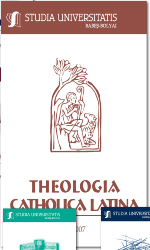THE FORMATION AND INTERPRETATION OF THE BIBLE AND OF THE QUR’AN
THE FORMATION AND INTERPRETATION OF THE BIBLE AND OF THE QUR’AN
Author(s): György BenyikSubject(s): Christian Theology and Religion
Published by: Studia Universitatis Babes-Bolyai
Keywords: Christian-Muslim dialogue; Nostra Aetate; Abraham; Jesus; Muhammad; Tora; Prophets; New Testament; Qur’an.
Summary/Abstract: The three Abrahamic religions, Judaism, Christianity and Islam, notwithstanding their differences, share a number of common traits. All three assign major importance to the religious experience of Abraham. Judaism describes the need for religious renewal in terms of return to Abraham’s religious commitment. Jesus compares himself to Abraham. Muhammad, at least initially understands his religious movement as a reform of the Abrahamic religion. This essay attempts to point out to the particular (specific and common) traits of the three religions, in the context of contemporary Jewish- Christian and Christian-Muslim dialogue. It briefly outlines the historical changes of their relationship, focusing subsequently on the relationship between the two sacred Scriptures, the Bible and the Qur’an, and their history of interpretation, showing that the Muslim charge of scriptural falsification may be countered by means of historical-critical analysis.
Journal: Studia Universitatis Babes-Bolyai - Theologia Catholica Latina
- Issue Year: 2008
- Issue No: 2
- Page Range: 36-58
- Page Count: 23
- Language: English

